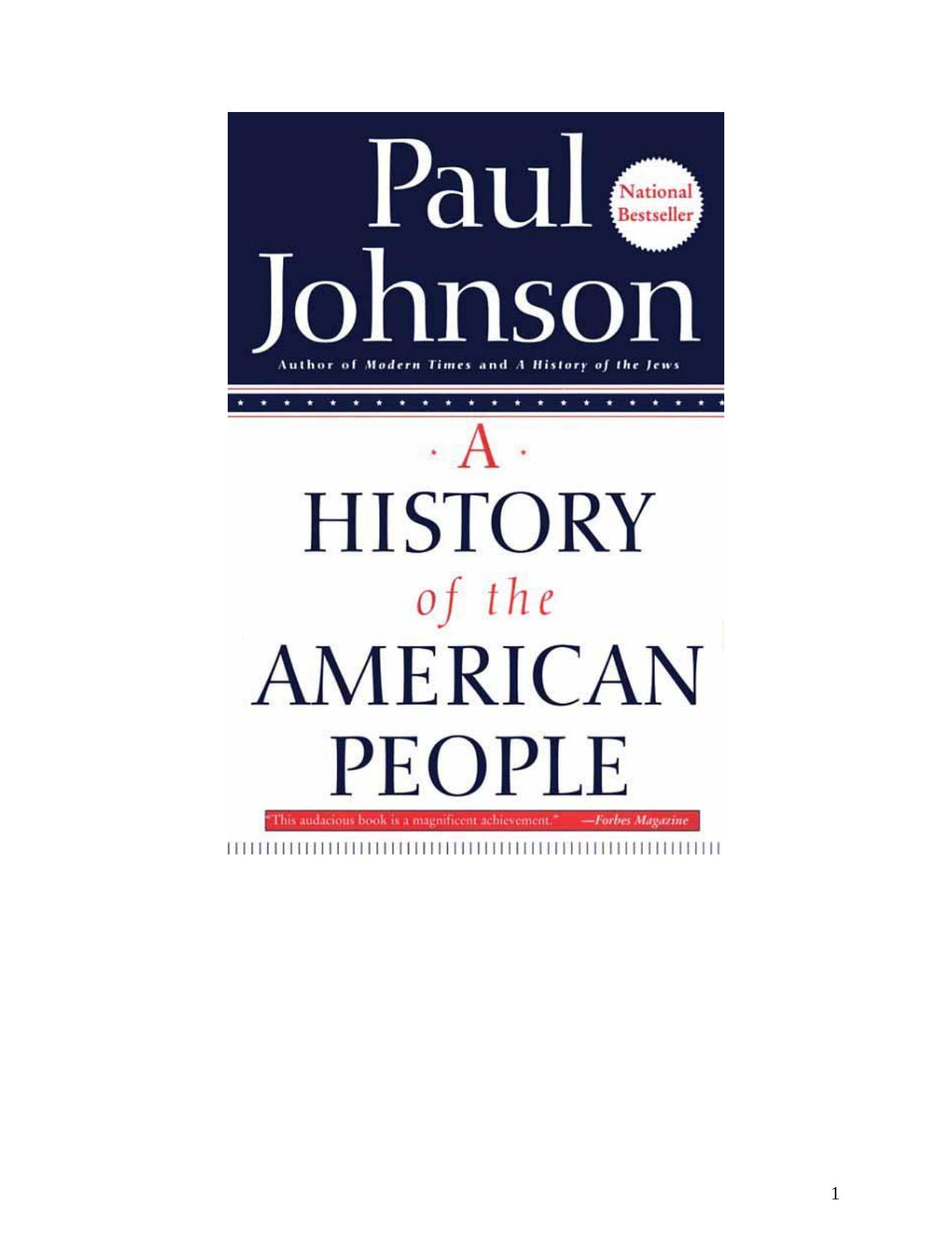A History of the American People by Paul Johnson

Author:Paul Johnson [Johnson, Paul]
Language: eng
Format: epub, pdf
Tags: Art
ISBN: 9780061952135
Google: RXSVQjz1_tMC
Amazon: 0060930349
Publisher: HarperCollins
Published: 1999-02-17T08:00:00+00:00
In these circumstances of political mediocrity, America tended to look elsewhere for leaders to admire, heed, and follow, and it was natural for it to find paladins in business. America had been founded by adventurers and preachers, and transformed into a republic by gentleman-politicians, but it was businessmen who made it, and its people, rich. Why should citizens not look up to them? Americans were conscious, in the 1870s, 1880s, and 1890s, that they were proud inhabitants of the world’s wealthiest country, enjoying living standards unprecedented in the history of humanity. All around them they could see the thriving machinery and infrastructure of this wealth-creating process, and it was inevitable that the men who presided over this pulsating, throbbing, enriching system should inspire confidence and invite emulation.
The archetypal hero of the age was Andrew Carnegie (1835–1919). He was also, in his own way, its most effective economic and political philosopher—he wrote a striking autobiography and an important article, ‘The Gospel of Wealth,’ in the North American Review for June 1889. Carnegie was not an American by birth. He was a Scotsman, born not into Calvinism but into something equally pervasive, the Scotch agnostic tradition. To some extent he remained a Scot, papering his apartments with Scots tartans and, at the end of his life, buying Skibo Castle in the Highlands. But he understood what America was about—none better. It was about the freedom to get rich, and then the duty to give that wealth away. His life was a perfect parabola overarching both objectives.83 His canny mother taught him thrift. His unhappy father, sacked as a hand-loom weaver to make way for power-looms, taught him the importance of new technology. Carnegie was a child-emigrant in 1848. He was small, thin, spry, with piercing blue eyes. His hair went white early, but he kept it. As a boy he knew hardship. He lived in an Allegheny slum in Pennsylvania, working a twelve-hour day as a bobbin-boy at $1.50 a week. Then he tended boilers. He got about, sleeping in box-cars, cabooses, anywhere. His break came when he got a job as a telegraph messenger and discovered Western Union was the firm of opportunity. At twenty-three he was its Pittsburgh superintendent. He saved his money and invested it.
Carnegie discovered the delights of capitalism when he got his first dividend check for his holding in telegraph stock: ‘“Eureka!” I said—here’s the goose that lays the golden eggs!’ He went into railcars, then oil. At twenty-eight he had an income of $47,860.67, of which only $2,500 was his salary, the rest profits on his savings. He decided that working for other people was unprofitable and looked around carefully to decide which was the line of enterprise in which to specialize as his own boss. He picked steel. It fitted his maxim: ‘Capitalism is about turning luxuries into necessities.’ When Carnegie started, steel trim was a luxury. When he retired it was standard. Carnegie had other maxims. One was: ‘Find out the truth from the experts.
Download
A History of the American People by Paul Johnson.pdf
This site does not store any files on its server. We only index and link to content provided by other sites. Please contact the content providers to delete copyright contents if any and email us, we'll remove relevant links or contents immediately.
The Secret History by Donna Tartt(16627)
The Social Justice Warrior Handbook by Lisa De Pasquale(11489)
Thirteen Reasons Why by Jay Asher(7788)
This Is How You Lose Her by Junot Diaz(5774)
Weapons of Math Destruction by Cathy O'Neil(5037)
Zero to One by Peter Thiel(4824)
The Myth of the Strong Leader by Archie Brown(4789)
Promise Me, Dad by Joe Biden(4449)
Beartown by Fredrik Backman(4419)
Stone's Rules by Roger Stone(4416)
How Democracies Die by Steven Levitsky & Daniel Ziblatt(4399)
The Fire Next Time by James Baldwin(4343)
100 Deadly Skills by Clint Emerson(4079)
A Higher Loyalty: Truth, Lies, and Leadership by James Comey(4033)
Rise and Kill First by Ronen Bergman(4012)
The David Icke Guide to the Global Conspiracy (and how to end it) by David Icke(3883)
The Farm by Tom Rob Smith(3872)
Secrecy World by Jake Bernstein(3783)
The Doomsday Machine by Daniel Ellsberg(3731)
